Amateurs and Contemporary Music: The Prevailing Winds
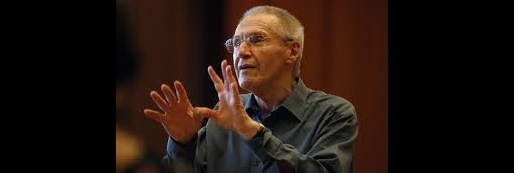
A case for amateurs and their mentors to include contemporary music in their regular repertoire.
In my last article for the ACMP Newsletter, “The Haydn Neglect,” I pled a case for amateurs to perform more Haydn and to perceive his music in an imaginative way. On quite a different tack, I now plead with amateurs and their mentors to consider contemporary music as part of their regular repertoire.Even though I pled a case for amateurs to perform more Haydn and to perceive his music in an imaginative way in an article for the ACMP Newsletter, “The Haydn Neglect,” (issue TK) I say this as I am struggling joyfully with Beethoven’s Op. 16 Piano Quartet, but modern music never moves far from my music rack be it music of the 20th or 21st century and even some recently composed work that I have been lucky enough to encounter.
How to make new music more accessible to amateurs remains a question separate from their playing contemporary music. I do not believe the answer lies in asking composers to write music technically easier for amateurs, but rather in begging amateurs to take on the challenges of playing new music much in the way they approach the difficulties of Haydn, Mozart, and Beethoven. I believe there will be some surprises in store for those willing amateurs. The prospect of amateurs commissioning new works would of course be an added benefit to the currently rich world of composition.
In my recent book, Chamber Music: An Extensive Guide for Listeners (Rowman & Littlefield 2015), I have included thirty living composers among the some three hundred covered in the Classical, Romantic, and Modern periods. Also prevalent in the book are many works by 20th and 21st century composers whose music might prove of interest to amateur players looking for contemporary repertoire. While I often refer to virtuosic challenges in the modern works, I do not mean to imply that they are more difficult than those offered by Haydn, Mozart, and Beethoven.
My own love of contemporary music can be traced back to my teenage years when my adventuresome piano teacher assigned William Schuman’s Three-Score Set, three brief piano works composed in 1943, for my recital before a high school audience. In the 1950s few high school students had even heard of William Schuman, then president of Juilliard and a highly honored composer. Years later, my admiration of contemporary music—and especially chamber music—continued as founding director of Market Square Concerts where many of the programs we presented included a new piece of music, sometimes even a world premiere of a work we commissioned.
Another fond memory of contemporary music is the Juilliard Quartet playing a fine new work by Richard Wernick which had come a long way from the Quartet’s performance which I had heard some months earlier in its New York premiere on January 22, 1990. Yes, even the Juilliard needed that time to become comfortable with a new piece, reminding us, indeed, that comfort is what we amateurs need in our approach to new music. Unlike traditional repertoire, little of new music is “in our ears” at first playing. This is not to say, however, that it will never enter the arena of familiarity once we have thoroughly worked with it. We may even find ourselves experiencing a remarkable discovery that Haydn is not so far from Schoenberg as we may have thought.
As an amateur pianist, a remarkable advancement in my understanding of new music came years ago when Richard Weinert (now President of Concert Artists Guild) and I undertook a performance of selections from György Kurtág’s Játékok (Games) IV for piano four hands at the Raphael Trio Chamber Music Workshop. While other amateurs were whisking their way along the difficult but familiar paths of Mozart and Beethoven, Richard and I fought our way through Kurtág’s challenging work. The challenges, however, were as much in the reading as in the playing. We had to figure out Kurtág’s complex directions for bringing down our fists over a collection of notes and, in the final statement of “Köd-kánon” (Fog-canon), to extend both our arms and hands so that every note on the keyboard was played at once. At first we joked, but then, as we played on, the piece became more and more essentially musical and moving. In a workshop performance, we brought down the house. I was reminded of something that John Cage once said about playing new music: “If something is boring after two minutes, try it for four. If still boring, then eight. Then sixteen. Then thirty-two. Eventually one discovers that it is not boring at all.” So it was with Kurtág’s challenging Játékok. The works had originally been suggested to us by pianist Ursula Oppens, a champion of new music.
Another experience as an amateur exploring new music came when I asked James Bonn, then pianist of the Los Angeles Piano Quartet, to suggest a contemporary chamber music piece that might be attractive to amateur players. Without hesitation, Jim presented me with November 19, 1838, a challenging but ultimately playable new work by John Harbison commissioned in 1988 by the National Endowment for the Arts Consortium and composed for the Atlanta Chamber Players, the Da Capo Chamber Players, and Voices of Change. I approached the piano part hesitantly because of its singular qualities but soon found myself engrossed in Harbison’s music. As the title implies, the work refers to the date of Schubert’s death and his miraculous life in music. The various sections were interestingly entitled:
I. Introduction: Schubert crosses into the next world
II. Suite: Schubert finds himself in a hall of mirrors
1. Theme
2. Écossaise
3. Moment Musicale
4. Impromptu
5. Valse
III. Rondo: Schubert recalls a rondo fragment from 1816
IV. Fugue: Schubert continues the fugue subject (S-C-H-U-B-E-R-T) that Sechter assigned him
* * *
Now let’s address the current state of affairs concerning amateurs and new music. For this I am turning again to some distinguished experts in the field whose workshops for amateurs I have attended. Daniel Epstein and Susan Salm are founders and directors the Raphael Trio Chamber Music Workshop held each August in High Mowing, New Hampshire. Speaking to them confirmed my hope that modern music has a strong presence in the repertoire of amateur players. Yes, their participants play Haydn, Mozart, and Beethoven, but they have also undertaken such 20th century composers as Arnold Schoenberg, Béla Bartók, Dmitri Shostakovich, Igor Stravinsky and later voices, namely, Benjamin Britten, Ned Rorem, Norman Dello Joio, and Quincy Porter.
Susan and Dan freely admit they do not force contemporary music on their participants but also insist that they welcome it. They note that the choice of new music often comes from some specific associations such as hearing it in performance or encountering it in some personal way. A list of recent contemporary works performed by participants in the Raphael Trio Chamber Music Workshop at High Mowing includes:
Béla Bartók (1881-1945), Contrasts for Violin, Clarinet, and Piano, Sz. 111
Benjamin Britten (1913-1976), Phantasy Quintet for Oboe and Strings, Op. 2
Norman Dello Joio (1913-2008), Trio for Flute, Cello, and Piano
Jean Francaix (1912-1997), Quintet for Clarinet and String Quartet;
Trio for Flute, Cello, and Piano
Philippe Gaubert (1879-1941), Trois Aquarelles for Flute, Cello, and Piano
Charles Ives (1874-1954), String Quartet No. 1
Gordon Jacobs (1894-1985), Quintet for Clarinet and String Quintet
Charles Koechlin (1867-1950), Divertimento for Three Flutes, Op. 91
Bohuslav Martinů (1890-1959)
Sonata for Flute, Violin, and Piano, H. 254
Promenades for Flute, Violin, and Harpsichord, H. 274
Madrigal-Sonata for Flute, Violin, and Piano, H. 291
Trio for Flute, Violin, and Bassoon, H. 265
Four Madrigals, for Oboe, Clarinet, and Bassoon, H. 266
Trio for Flute, Cello, and Piano, H. 300
Andrea Molino (b. 1964), Trio for Flute, Viola, and Guitar
Quincy Porter (1897-1966), String Quartet No. 3
Ned Rorem (b.1923), Trio for Flute, Cello, and Piano
Dmitri Dmitri Shostakovich (1906-1975), Piano Trio in E Minor, Op. 67
Igor Stravinsky (1882-1971), L’ Histoire du soldat for Violin, Clarinet, and Piano
While this telling list contains few works by living composers, it does reveal much music of the first half of the 20th century when Modernism was in full flourish. It also suggests that contemporary music for amateur performance is more readily sought by wind players. The obvious reason for this is the lack of chamber music repertoire for winds in comparison to that for string quartets, string trios, piano trios, piano quartets, and piano quintets. Interestingly, new music is currently helping to diminish that difference. The Raphael Trio list also reflects a specific flutist, Stephanie Bazirjian, a long-time participant in the Raphael Trio workshop and champion of contemporary music. Cheers for her!
The distinguished professional flutist Mimi Stillman also encourages contemporary music at the Curtis Institute’s Summerfest program for amateurs where she serves on the faculty. She confirms my thoughts on amateurs and contemporary music and its appeal for wind players in her comments. String players and pianists, she notes, have a full repertoire from the Baroque, Classical, and Romantic periods and even a wealth of well-known 20th century music available to them, but wind players, says Mimi, “by necessity play lesser-known composers and many 20th-century works that are staples in our repertoire. Eugene Bozza and Pierre Max Dubois are just two examples of 20th-century composers encountered by woodwind players more often than by their string and piano-playing peers. As for new music by living composers, many amateur flutists who play in flute ensembles—from duets to full flute choirs—are regularly exposed to music for these groups written for all levels of proficiency. Amateur flutists tend to be quite open-minded about new music.” String players and pianists, let’s join them!
In conclusion I might say that I am not asking amateurs to abandon their dedication to traditional repertoire. I am simply asking them to open their minds and hearts to contemporary music if they have not already done so. The results may bring some wonderful surprises.
More Articles
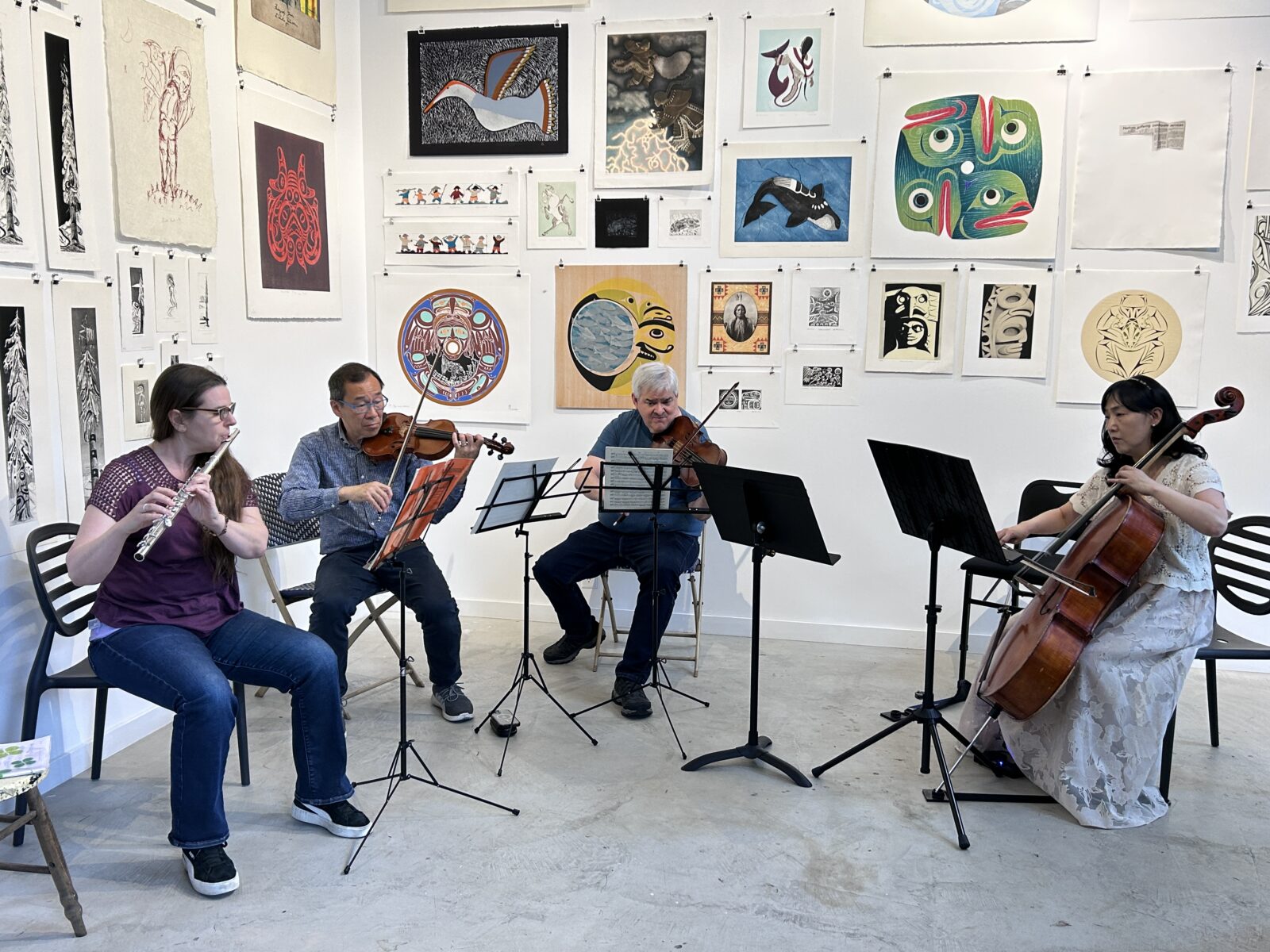
And the Play-Ins continued in June!
With ACMP's rapidly growing community of chamber musicians, Play-In season is never over! Read about two recent Play-Ins in June.Read More ↗
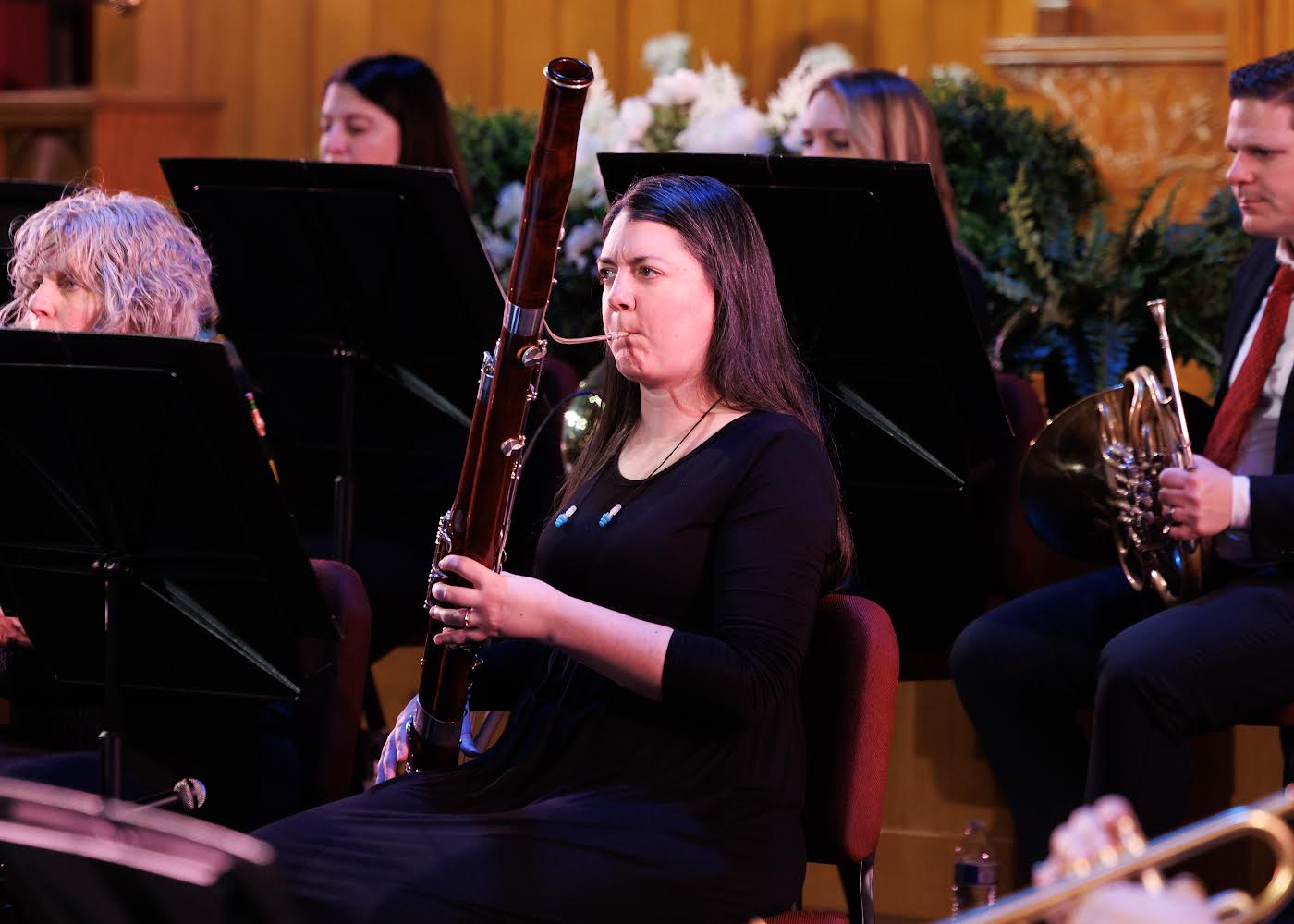
2025 News of Note Puzzle Contest Winner and Answers
Congratulations to bassoonist Jessi Vandagriff for winning this year's News of Note puzzle contest. And read more for the great puzzle answer reveal!Read More ↗
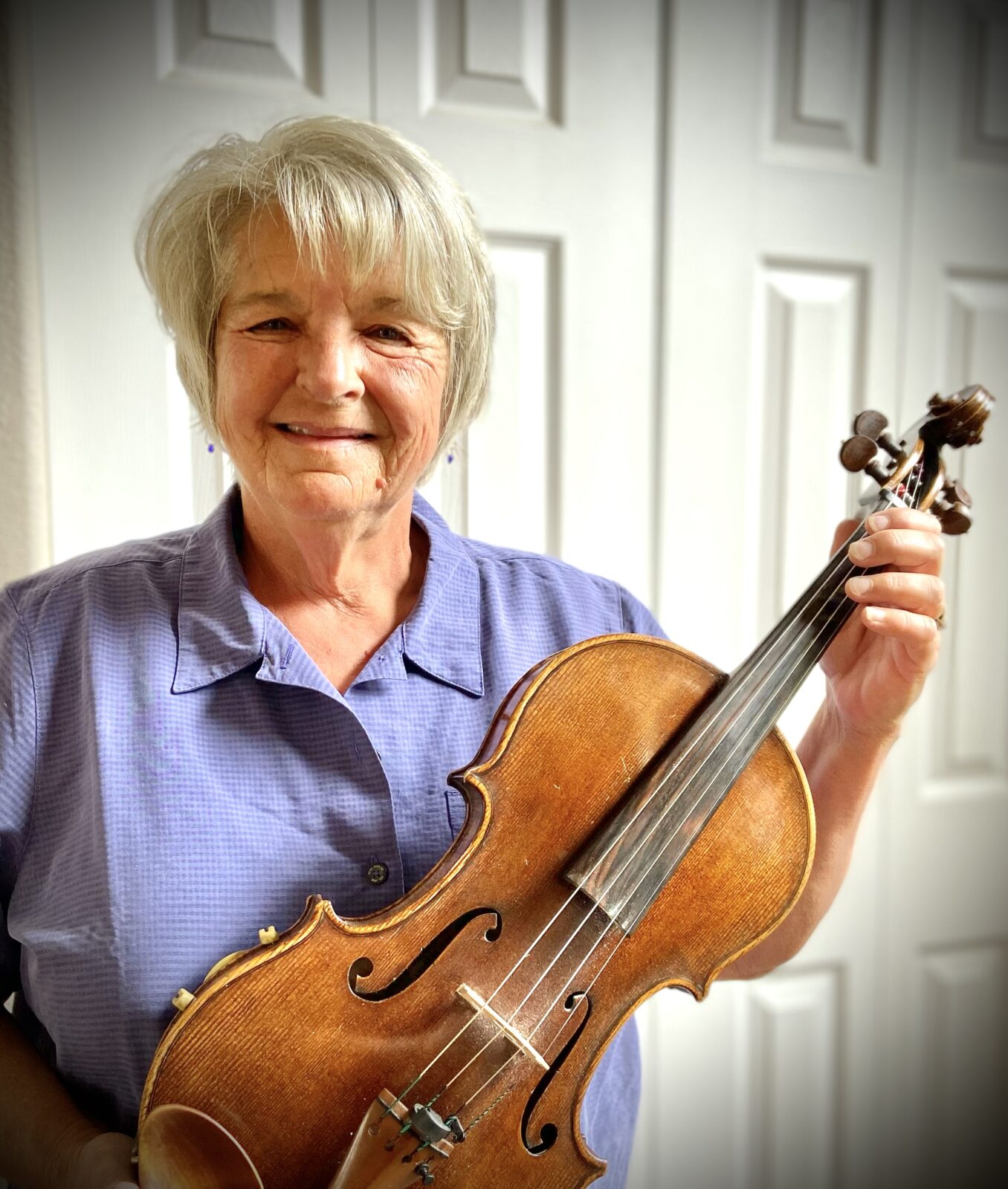
Member of the Month, July 2025: Cheryl Hite
The ranks of ACMP members are filled with professionals who began their college careers with the intent of pursuing music for a living, then for whatever reason moved into another career. Colorado-based violist Cheryl Hite is one of those musicians. A native of Detroit, she enrolled at Indiana University in the 1970s as a double major – biology and viola performance. Read her interview with ACMP Board Chair Bob Goetz.Read More ↗
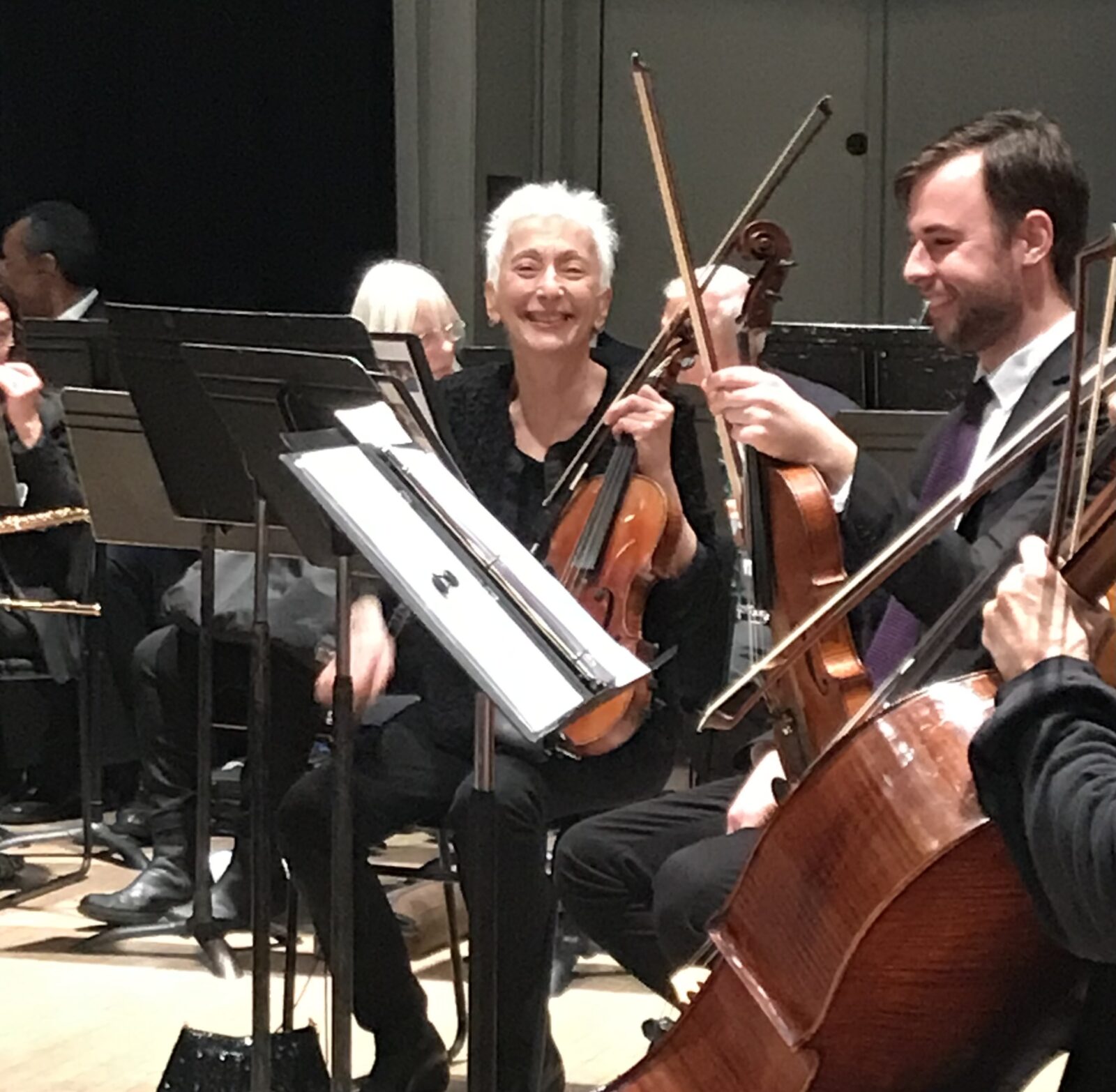
The day my quartet played out of tune and almost got our host evicted
Chamber music can be a high stakes activity - play a bit out of tune, and your host could end up on the street. Read about one such close call in New York City.Read More ↗
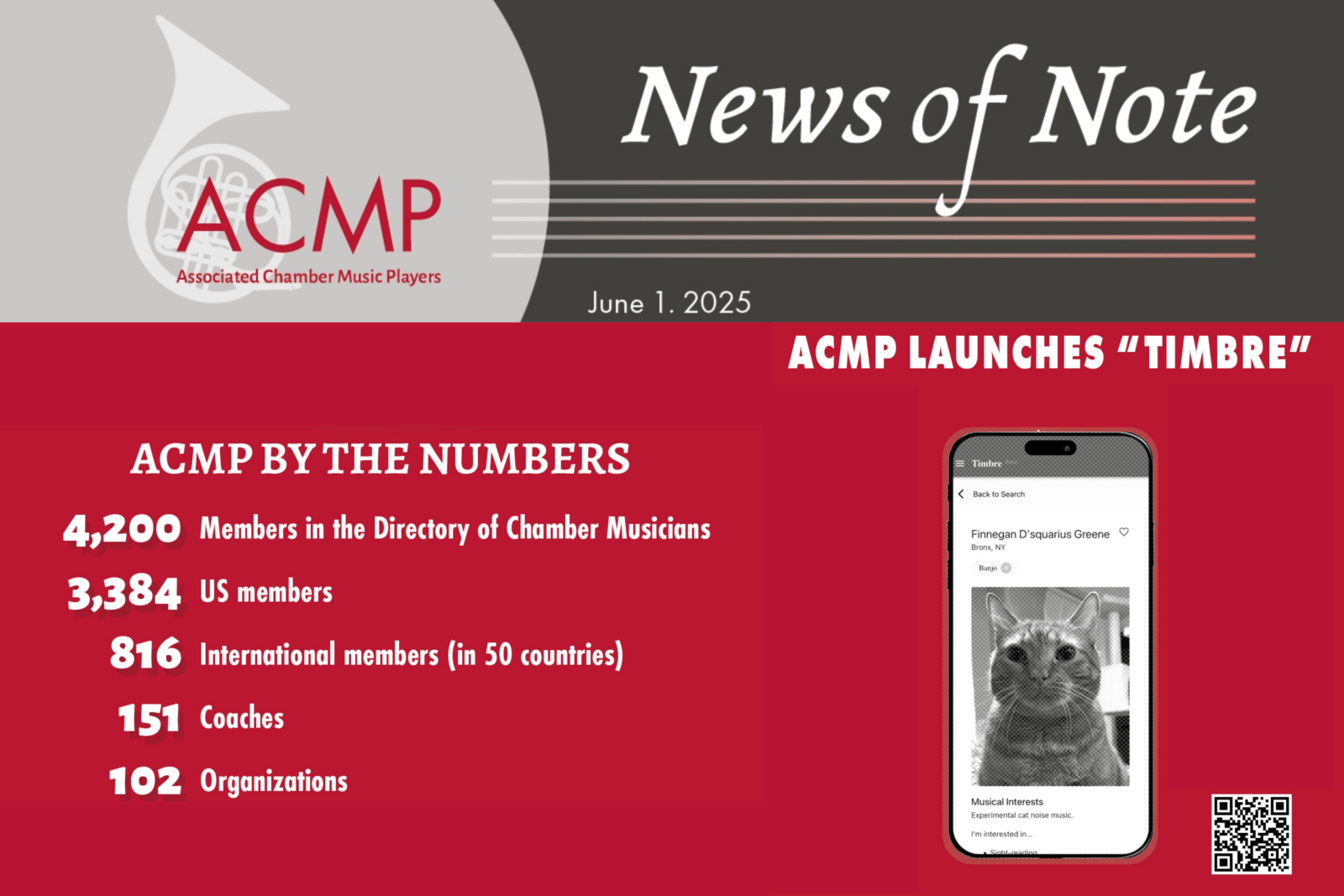
News of Note 2025
It’s that time of year again! The web version of the 2025 News of Note is live, featuring updates from the past year—and some fun extras, including everyone’s favorite: a new puzzle. (Submit your answers by July 1!)Read More ↗
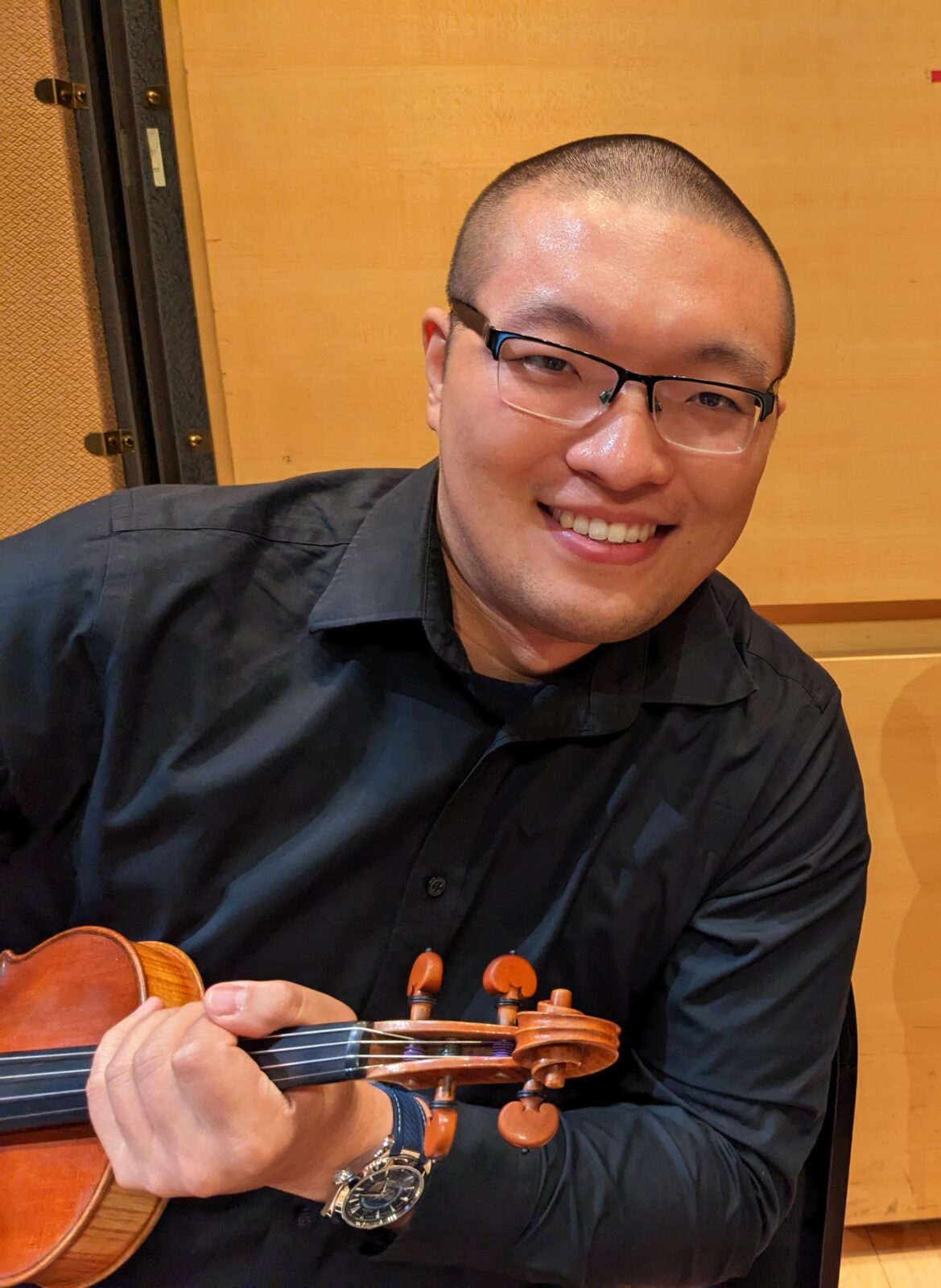
Member of the Month, June 2025: Frank Song
Frank Song, 28, may work remotely as a software engineer, but when it comes to music and the arts, he is all about being there, in person. With the flexibility to travel in his work, he seeks out concerts or museum exhibits in cities far beyond his home in Toronto. And while he’s at it, he takes along his violin to play chamber music. We caught up with Frank on a recent visit to New York, where he played chamber music with people he found through ACMP.Read More ↗

Seasoning for the Seasons
With a taste for adventure and a pinch of whimsy, follow ACMP cellist Tom Cappaert’s lead: stage a chamber concert in a Quito pizza parlor.Read More ↗
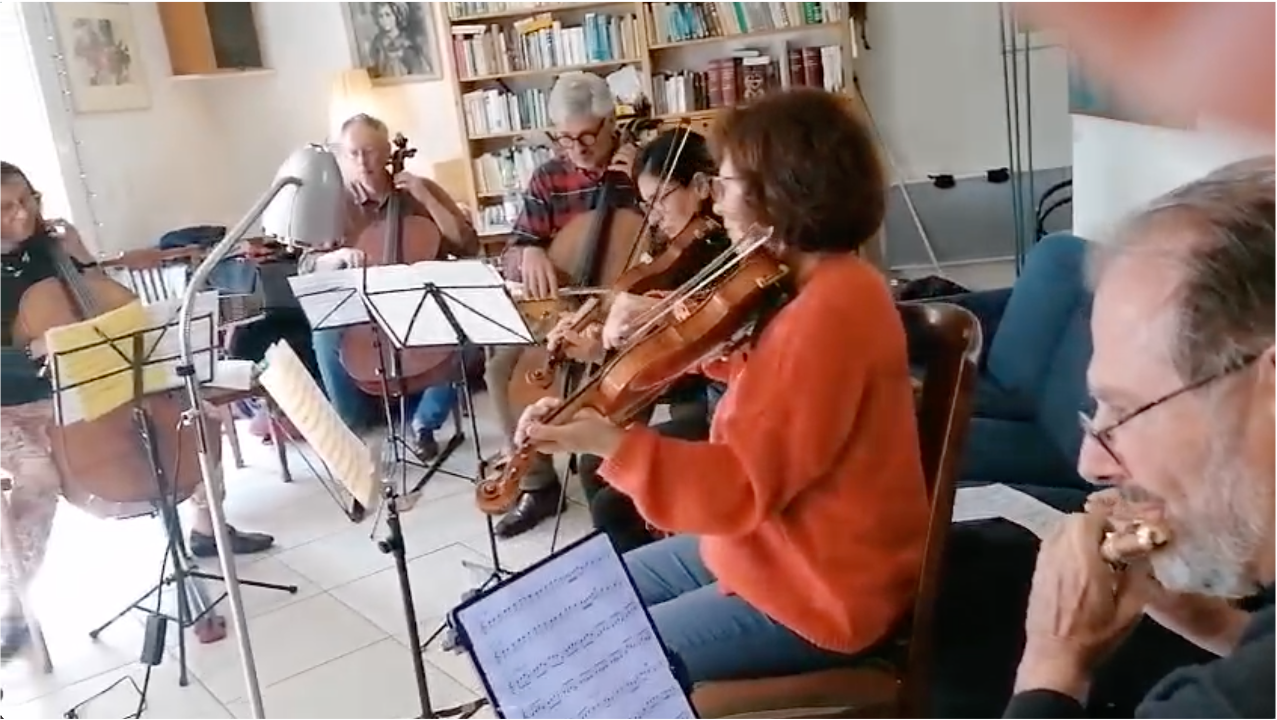
May 2025 Play-In Highlights!
Highlights from just a few Play-Ins during National Chamber Music Month!Read More ↗
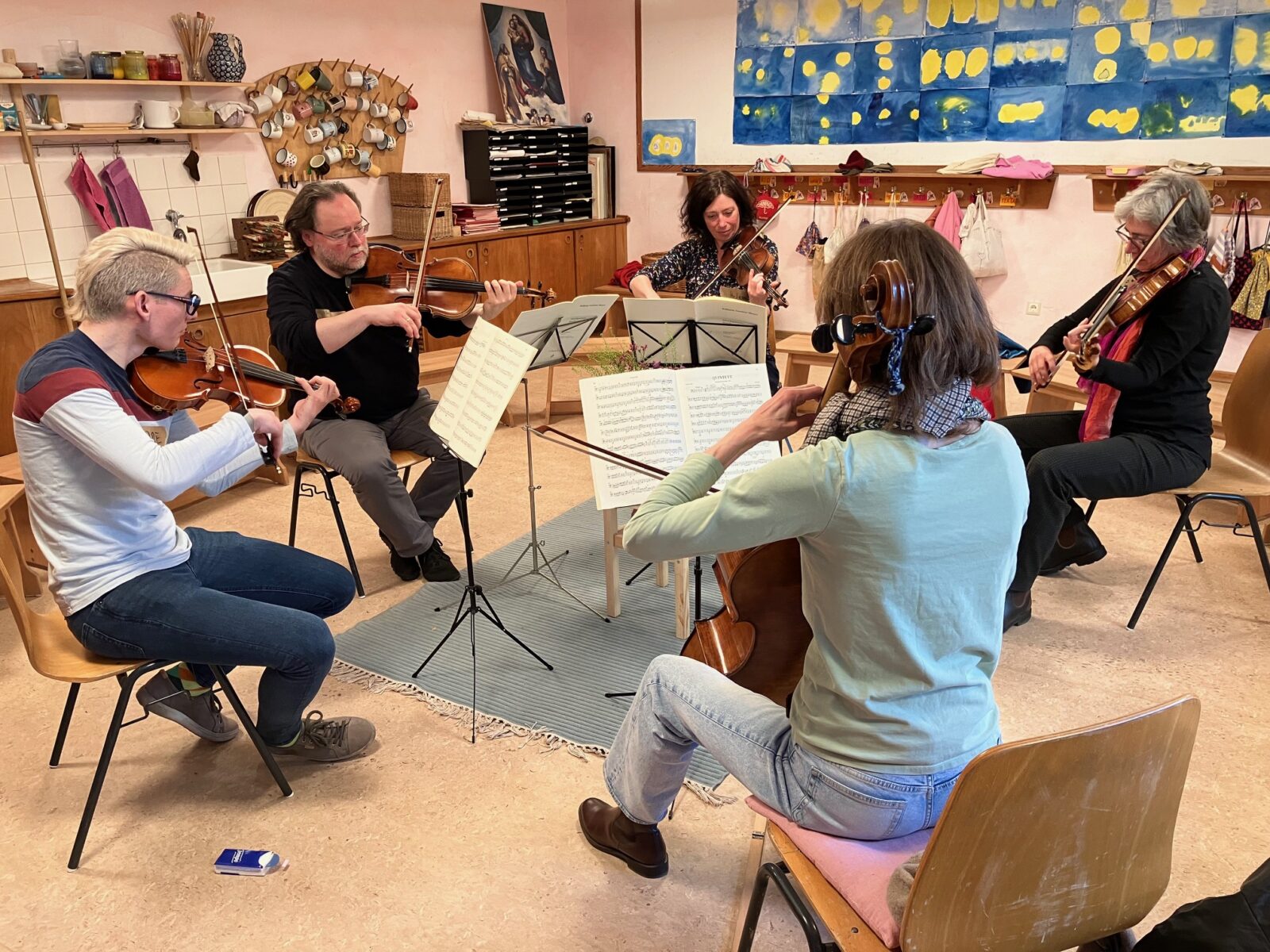
Play-In Report: Berlin Kammermusik Liste
Michael Knoch runs the Berlin Kammermusik Liste, and represents ACMP as its International Ambassador in Germany. He holds at least two Play-Ins a year, and has a unique gift for organizing large Play-Ins with a mix of all instruments and voice. Read about his second Play-In of 2025!Read More ↗
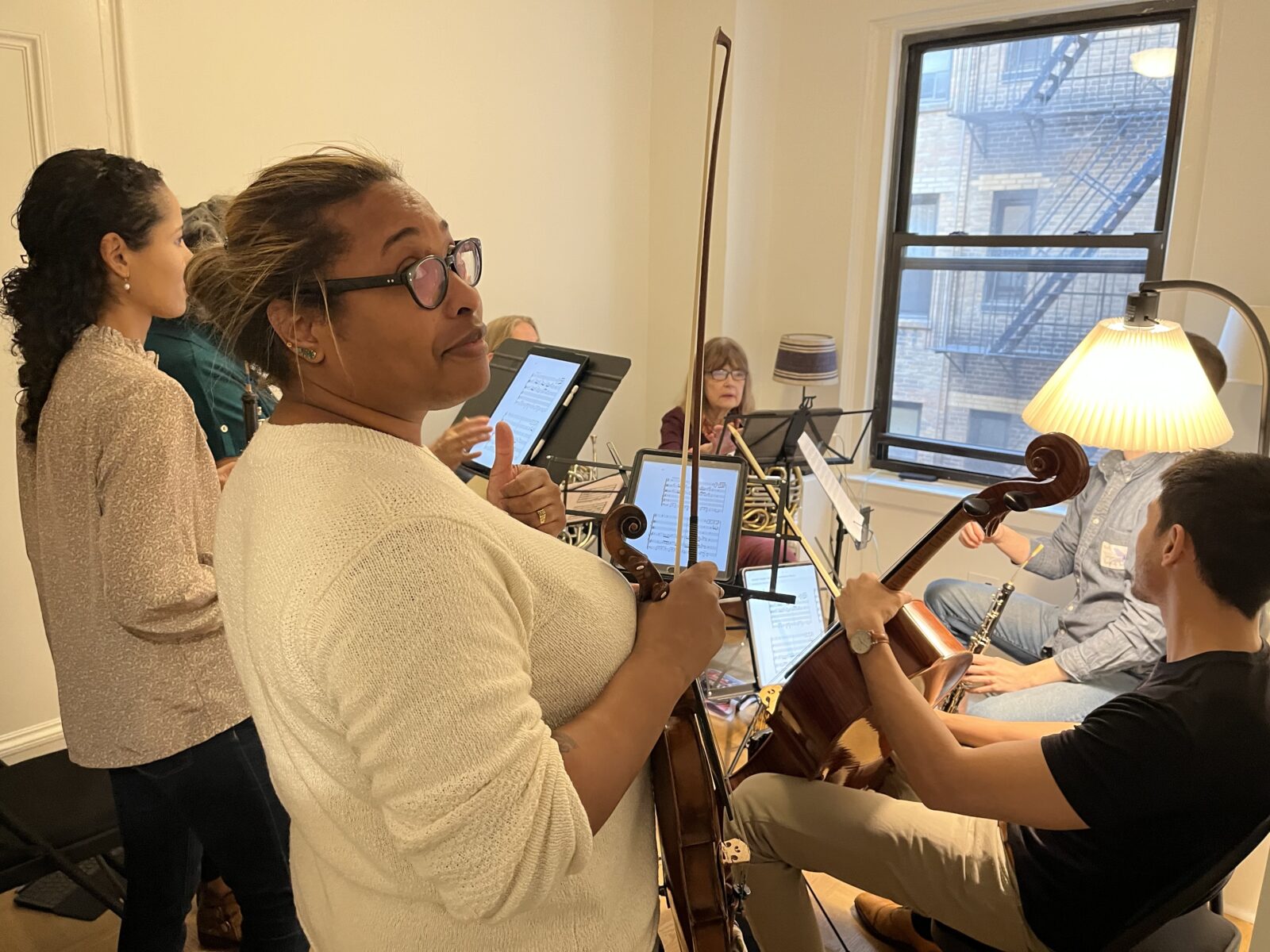
2025 Worldwide Play-In Events
May is Chamber Music Month! Celebrate with Play-Ins all month long, and during the Worldwide Play-In Weekend: May 16-18, 2025. See this list of Play-Ins in the ACMP Directory to date, and keep checking it for updates.Read More ↗
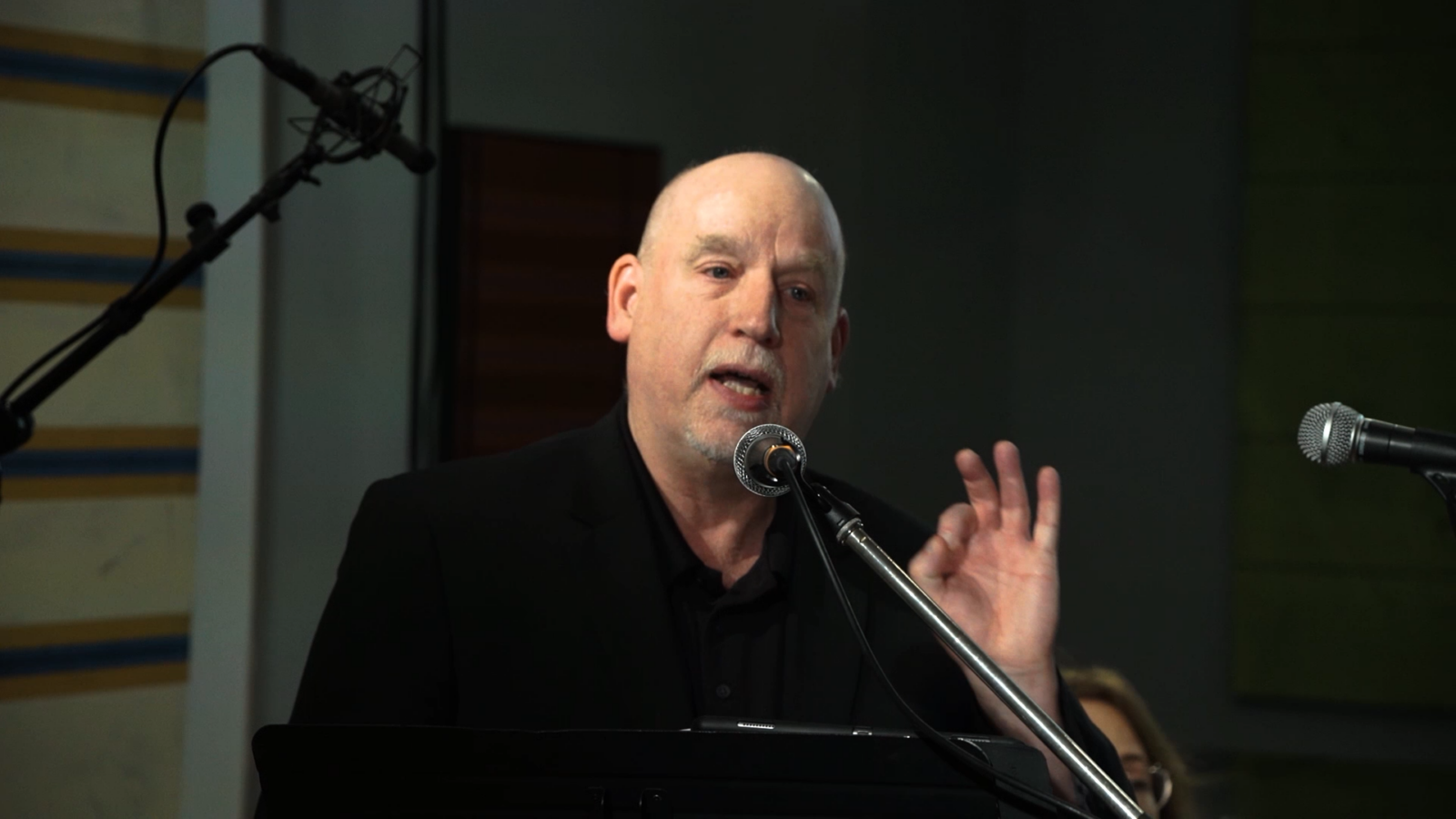
New Video: Ravel’s String Quartet with Cal!
Cal Wiersma is back, sharing ensemble tips and tricks through the lens of Ravel’s String Quartet.Read More ↗
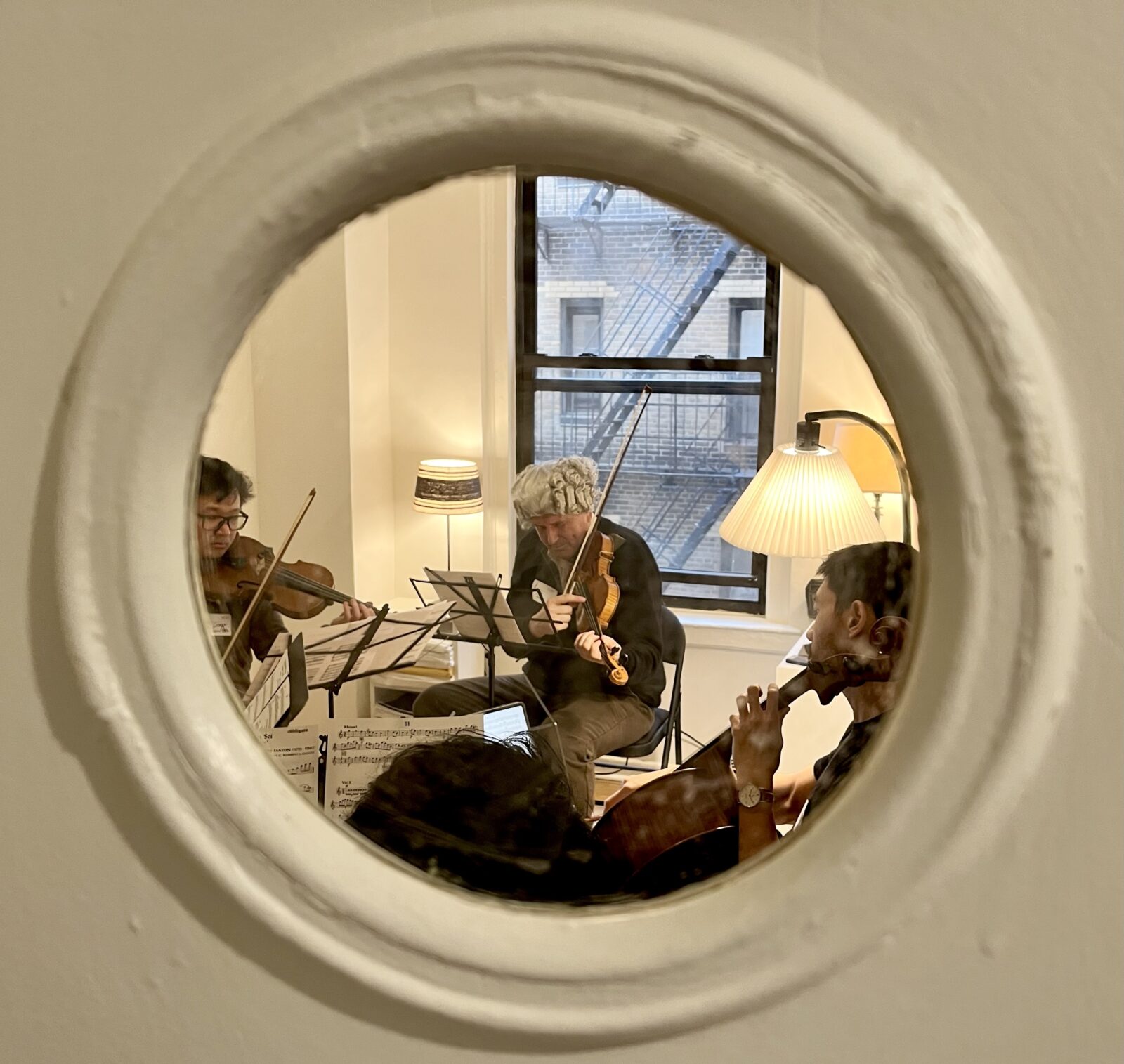
Here’s looking at you, Joe!
One day before Haydn's 293rd birthday - a Haydn party happened in Manhattan. Haydn himself appeared (in the form of ACMP violinist, board member and host, Bob Goetz.) 30 players participated - one third of the participants were wind and brass players! Read about the party and get some fun repertoire ideas!Read More ↗
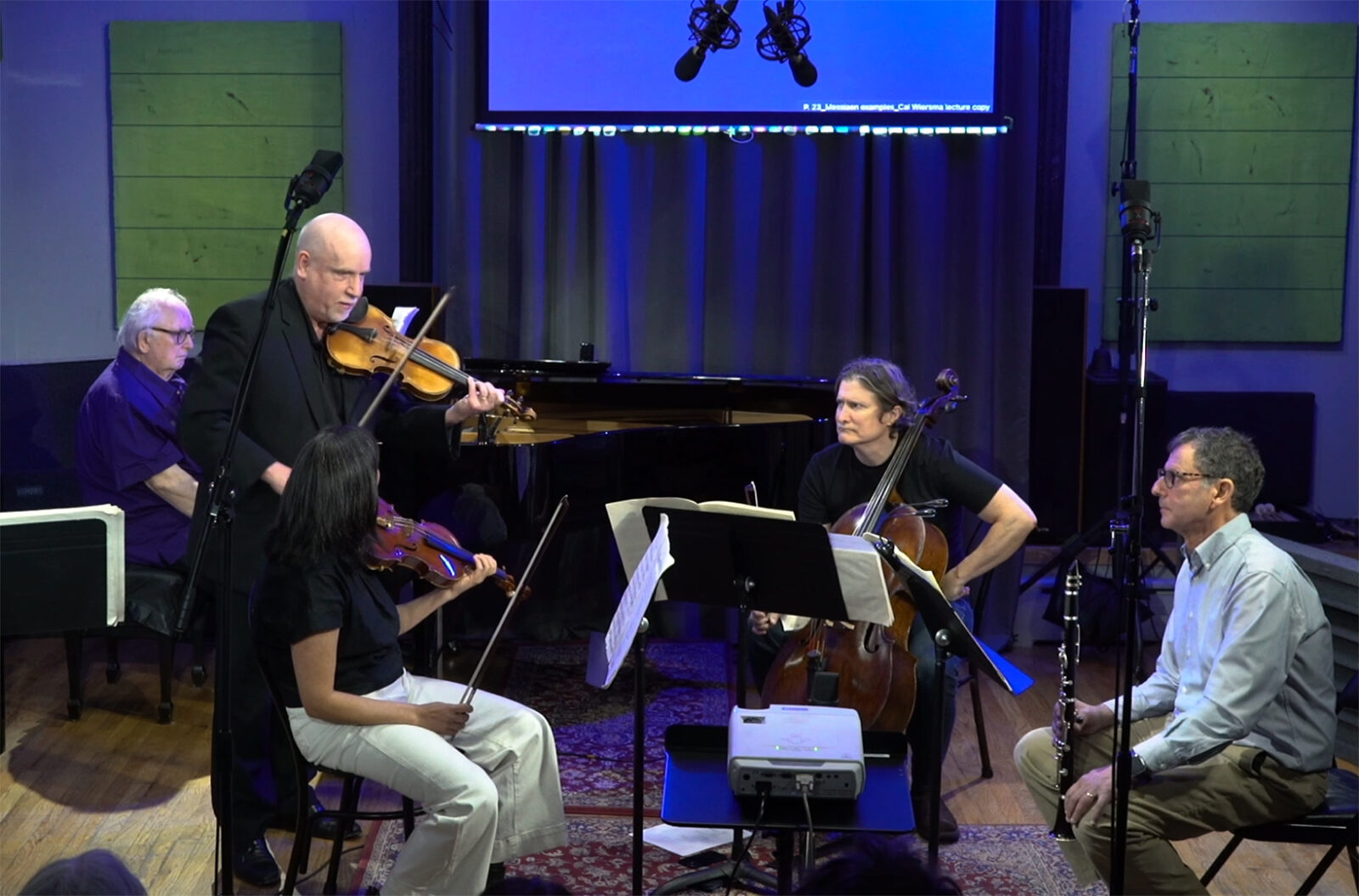
Cal Wiersma Class: Rehearsal Techniques in Ravel’s String Quartet
Back by popular demand - ACMP is offering another live and live-streamed class with violinist and chamber music coach Cal Wiersma on chamber music rehearsal techniques in Ravel's String Quartet on Sunday, April 6 at 3pm ET.Read More ↗
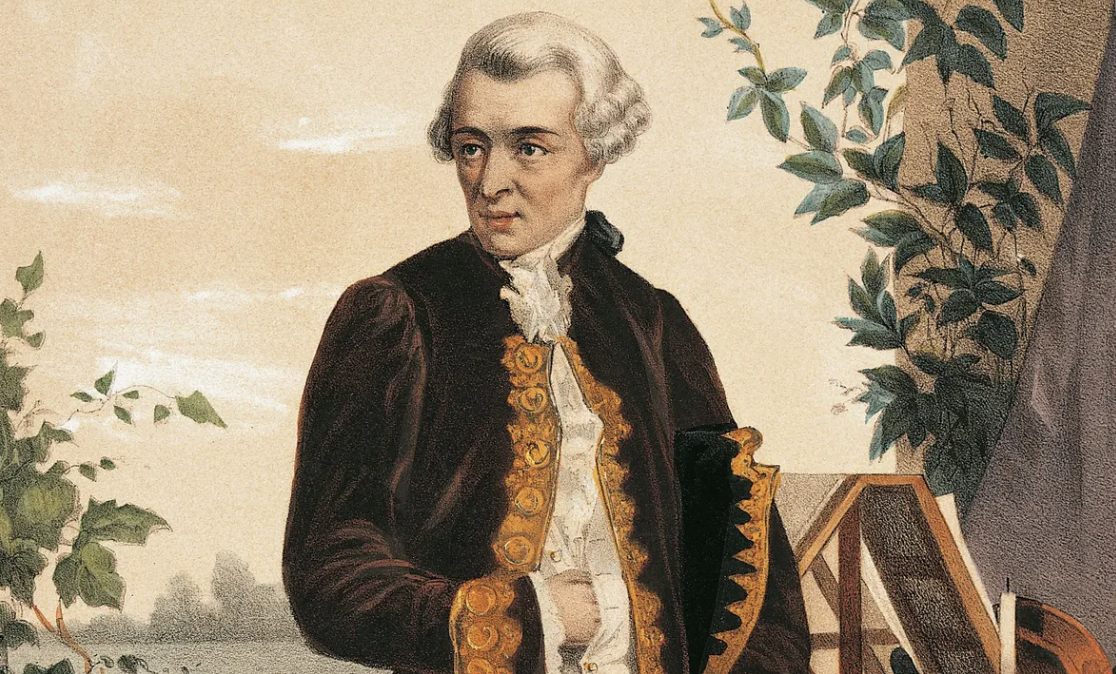
The 2025 ACMP Haydn Challenge
March 31 is Joseph Haydn’s birthday! It’s also a fabulous occasion to celebrate his contributions to the world of chamber music with a gift in his honor to ACMP…Throughout the month of March, we hope you will participate in the ACMP Haydn Challenge.Read More ↗
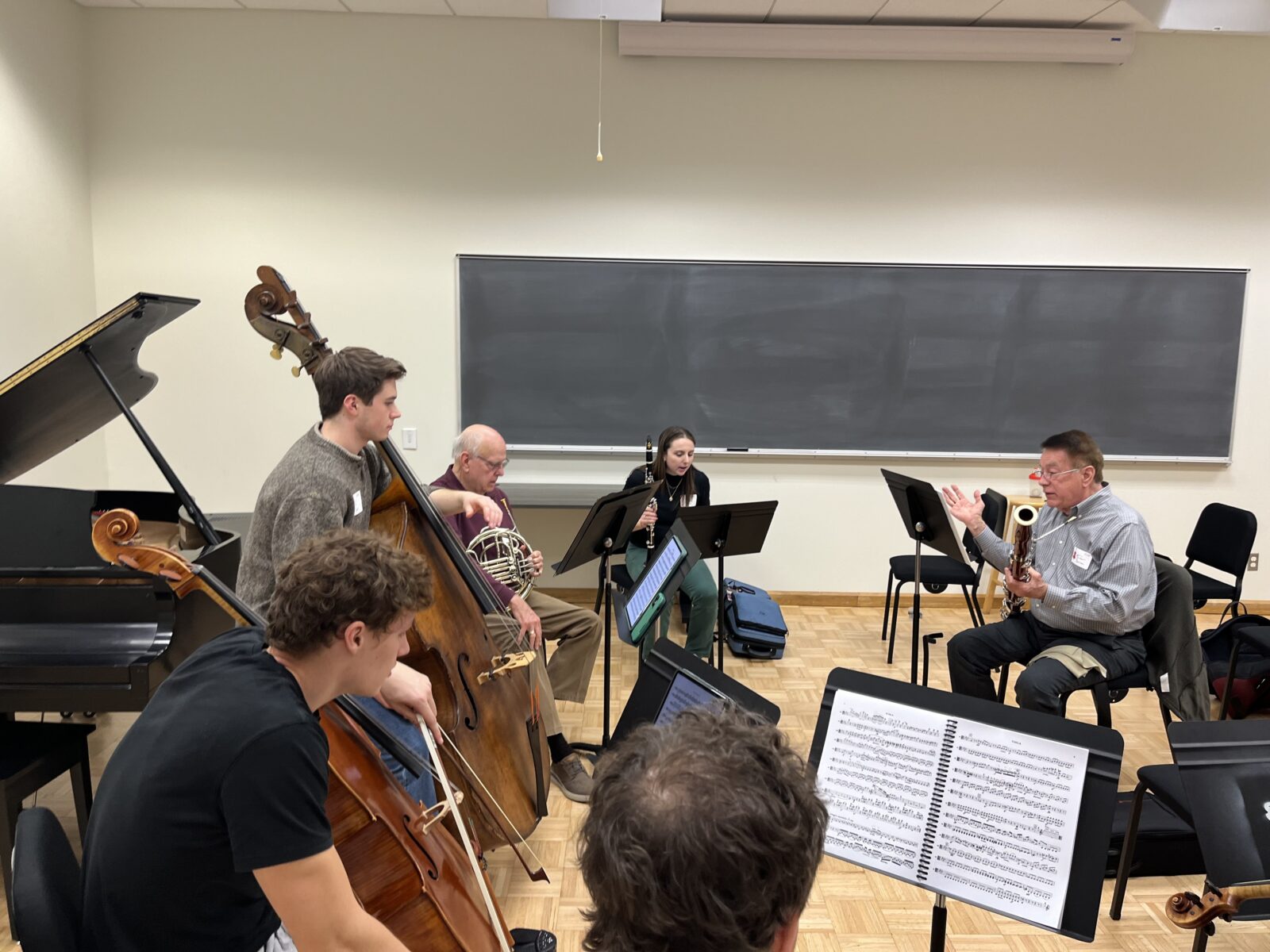
Post-CMA Conference Recap 2025
The CMA Conference in Houston—four days of nonstop music, inspiring connections, a jam-packed ACMP Play-In and a surprise woodwind trio at the Menil Collection!Read More ↗
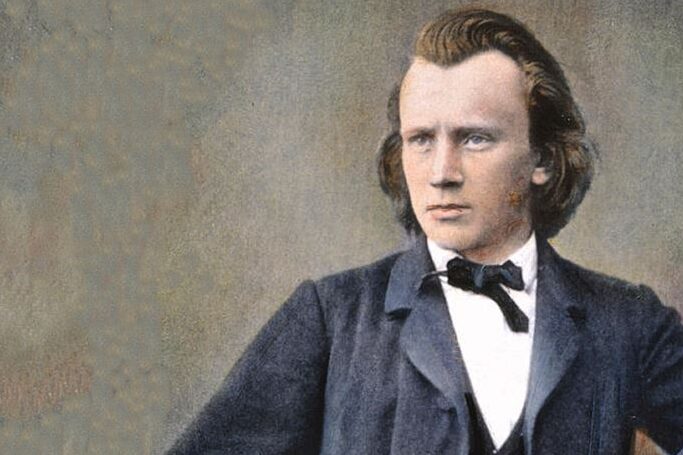
New Listening Club Video: Exploring Brahms Piano Quintet in f minor, Op. 34
Out now! Watch the video recording from our recent Listening Club event with Peter Fender returning and going through Brahms’ Piano Quintet in F minor, Op. 34—an arrangement of an arrangement.Read More ↗
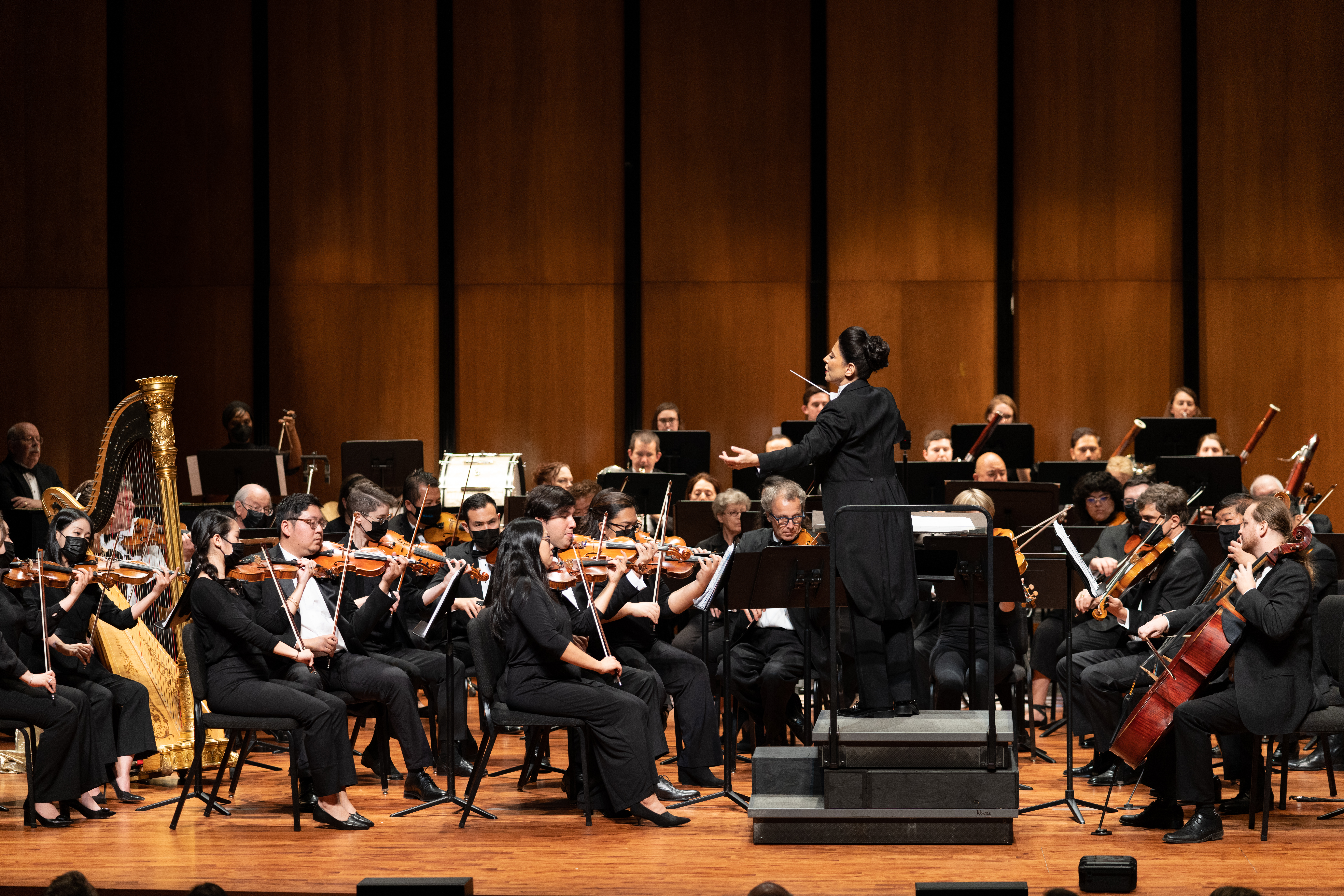
An orchestra born out of one woman’s dream
Over the course of its 25 years, the Texas Medical Center Orchestra has earned national acclaim in becoming a fixture of the Houston musical community. But how it got to this point can be traced to the vision of one woman—Libi Lebel, who moved to the Houston area in the late 1990s as an aspiring conductor and simply wanted to find a group to lead.Read More ↗
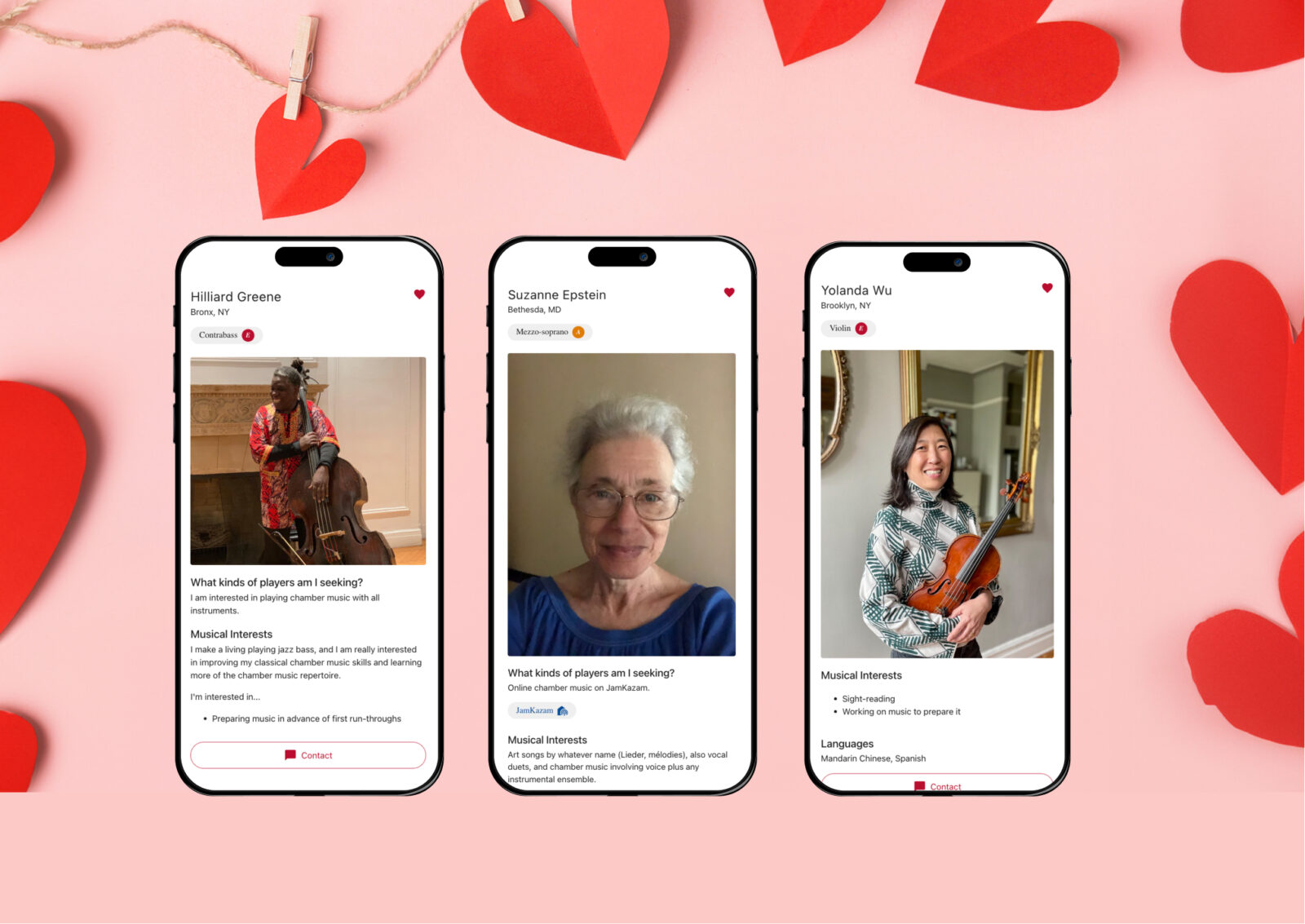
And it’s launched! The new Timbre web app
Just in time for Valentine's Day, ACMP is launching its new Timbre web app. Here's how to find it - and some handy tips on how to use it, too.Read More ↗
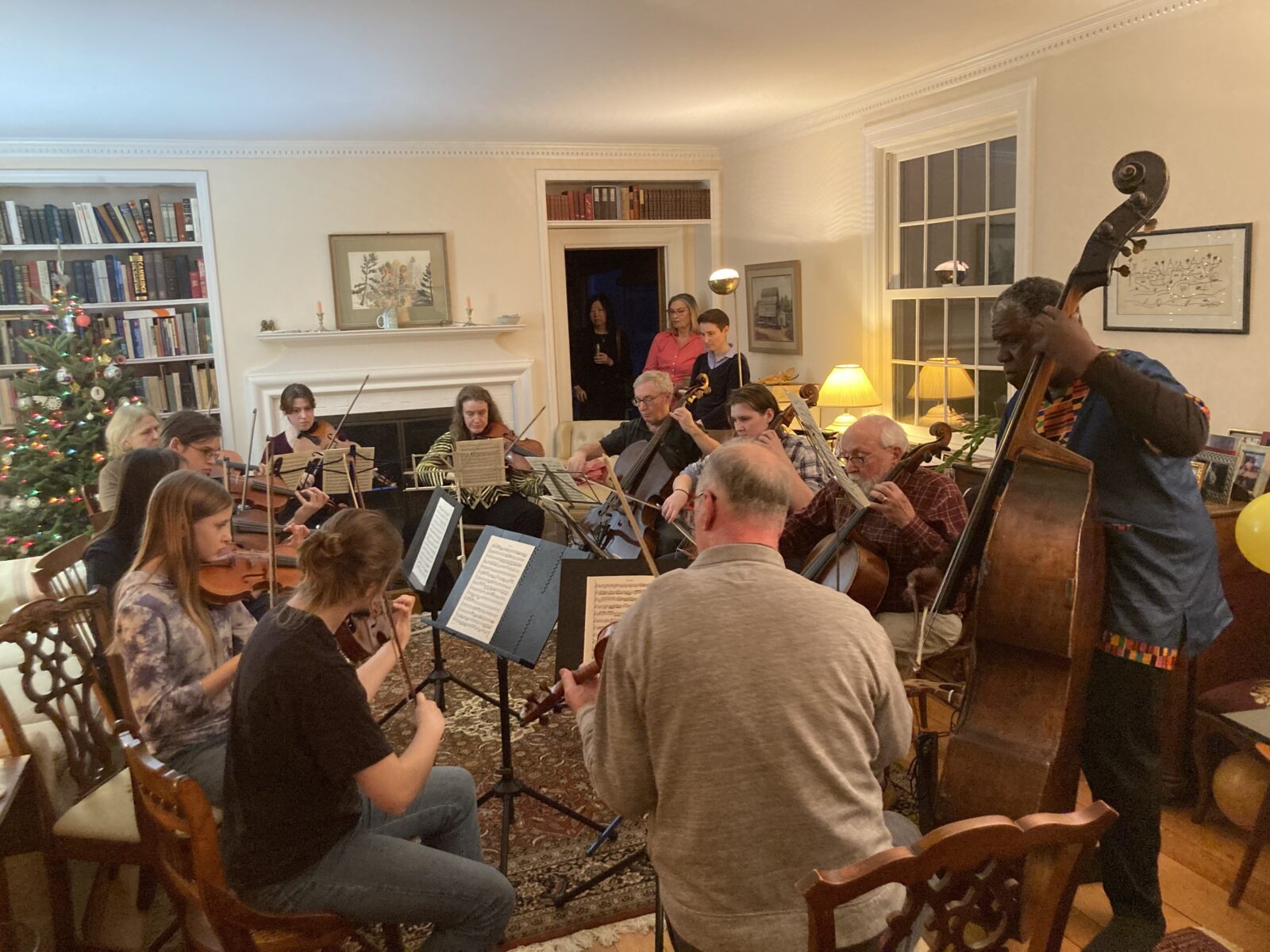
Celebrating the holidays with chamber music!
Looking back on a festive holiday season,ACMP was especially inspired this year by how many of our members made music together in their homes as part of their celebrations. ACMP Executive Director Stephanie Griffin attended two of these, and a special jazz party on New Year's Day.Read More ↗
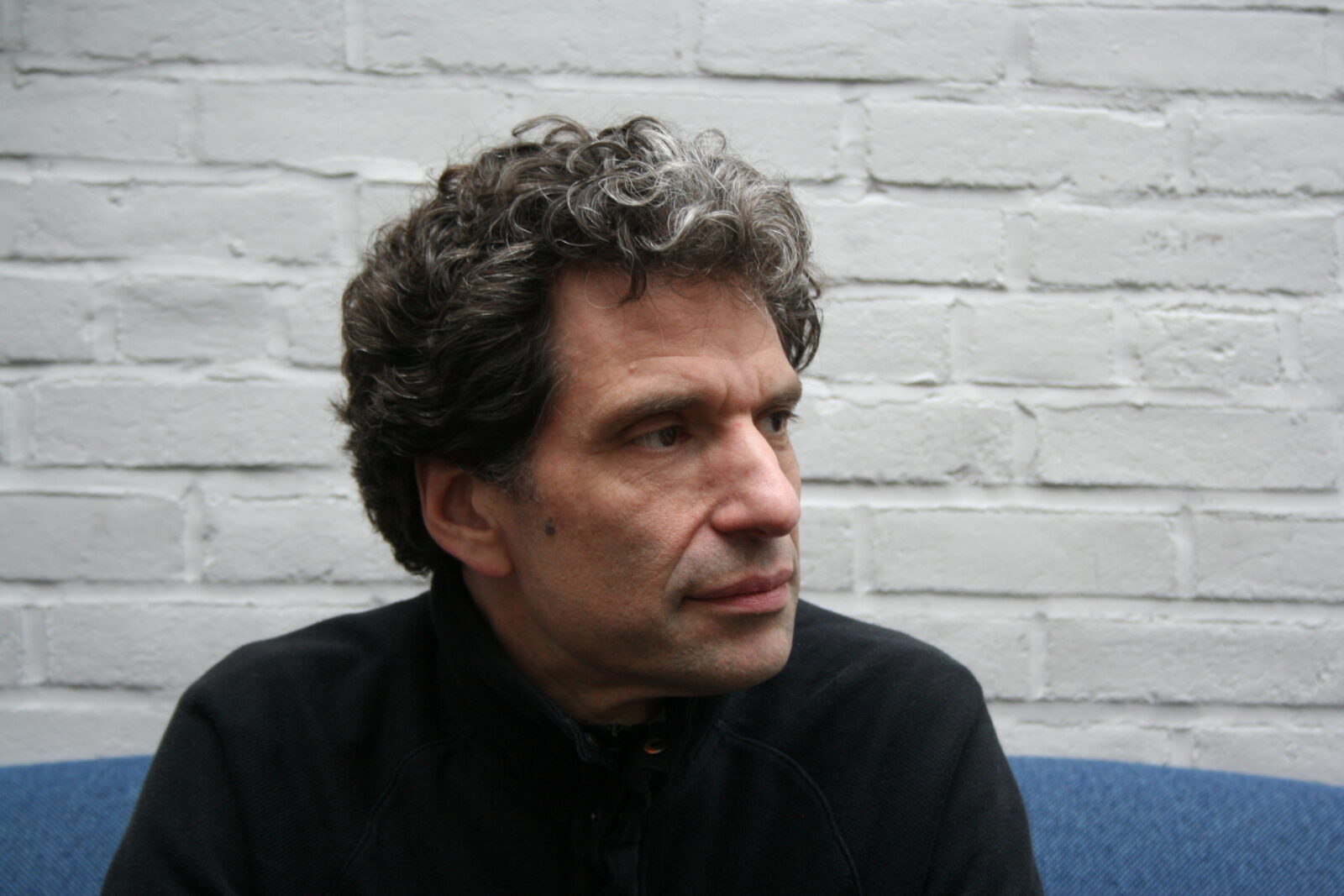
ACMP member discount on Seth Knopp’s new course “Music Speaks”
Join pianist and Yellow Barn Artistic Director Seth Knopp in New York City for a unique new music appreciation course "Music Speaks" on February 22 and 23 and March 1 and 2. And enjoy a 20% discount as a member of ACMP!Read More ↗